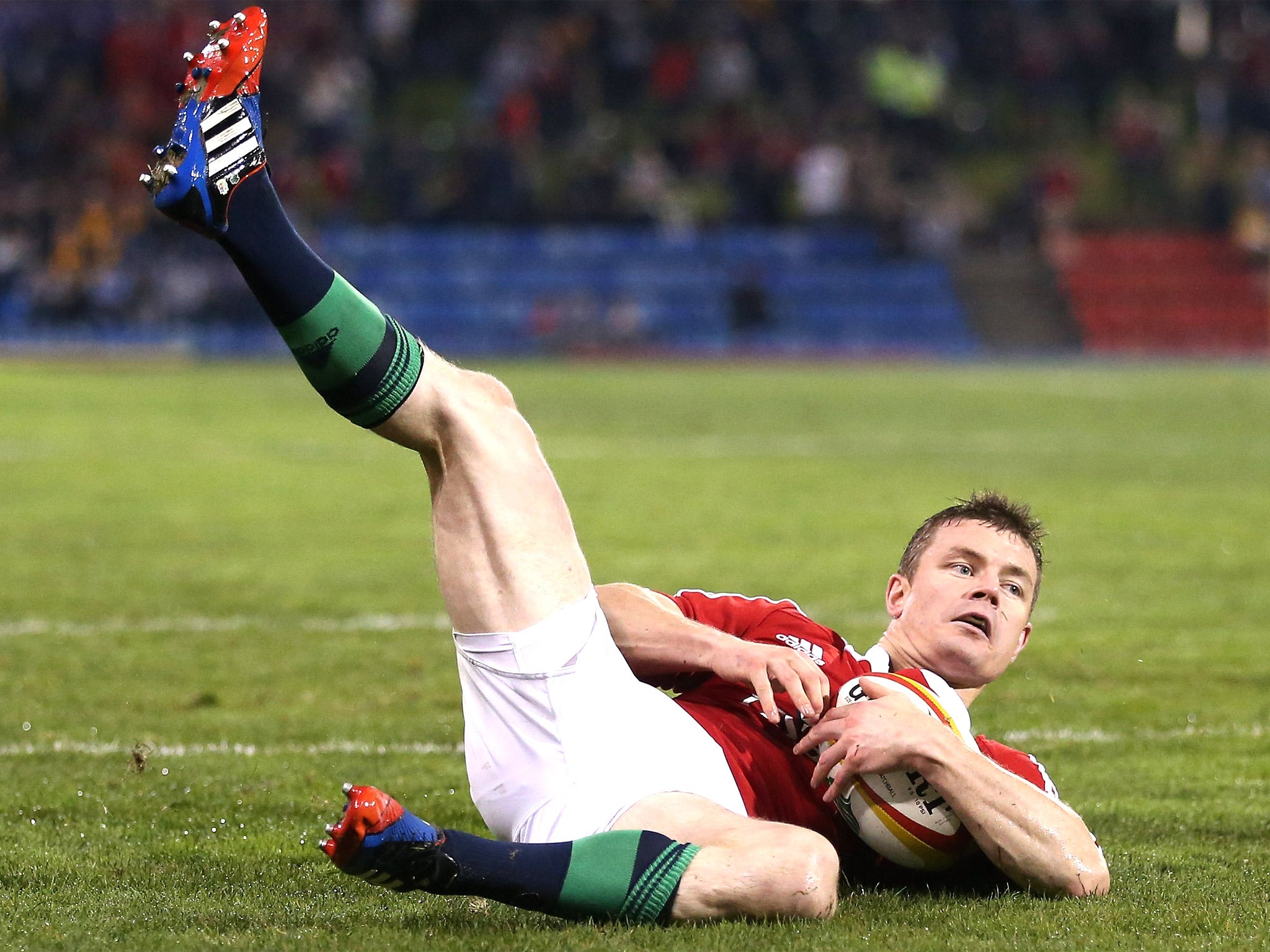James Lawton: No easing up in Brian O'Driscoll's rage at dying of the light
What was so arresting for Phil Bennett was his intensity

When you hold the credentials of the great Phil Bennett you are not supposed to be easily beguiled, especially when the opposition is provided by the country boys of New South Wales. However, that was the status of the legendary Welsh fly-half.
He sat down to watch a routine pummelling victory by the Lions. He stood up with still more admiration for the astonishing vigour with which Brian O'Driscoll, 34, is fighting against the dying of the light.
"I wrote him off five years ago when Wales beat Ireland in Croke Park," says Bennett. "He had a poor game and he was taken off injured. I told the world how sad it was to see the end of a great player. I thought maybe he had taken too much punishment down the years, that all of it had taken its toll.
"A year later he was a Lions star in South Africa and now he is promising the same feat in Australia. It is one of the greatest stories in rugby. I've no doubt that if he keeps fit he will be the first name on the Lions team-sheet for the first Test."
What was so arresting for Bennett was not the quality of the virtuoso touches, some of which were no doubt inevitable in such company, but the extraordinary level of intensity displayed by O'Driscoll.
As the stand-in captain, he was remorseless. The Lions were 50 points clear of brave but utterly outgunned opponents when he pointed out so ferociously to referee Steve Walsh that the Country XV had knocked on in the shadow of the posts. There was not a passage of play that did not provoke his instant analysis and when the scoreboard had slowed so markedly in the final minutes his exquisite little chip into the corner provided Jonathan Davies with the formality of a try.
"At one point," recalled Bennett, "he threw himself at a ball going out of play, risking injury and I could only think, 'that's quite remarkable.'"
For Bennett there is a degree of poignancy in his celebration of the Irishman's record-equalling fourth Lions tour. It reminds him that when he made his second, three years after the triumph of Willie John's team in South Africa in 1974, it was in the absence of his Welsh team-mate – and arguably the greatest scrum half in the history of the game – Gareth Edwards.
"Gareth turned down the chance to go on his fourth tour and you had to wonder how we would have gone on if he had come to New Zealand when the All Blacks got their revenge for the defeat in 1971. Gerald [Davies] and JPR [Williams] were also missing. It was a different time, the game was still amateur, and Gareth reckoned that he had other obligations. JPR said that long tours were not conducive to setting up a career as a surgeon.
"Maybe this gives me a special feeling for what O'Driscoll is doing. I've said in the past, 'maybe he has such a good time in Dublin it keeps his spirit up for such a challenge as this,' but the point is that in the professional age there has been no greater player. Some players might have taken it a little easier. It wasn't as if he hadn't already made a tremendous impact.
"But then you do not achieve what he has without something extraordinary in the way of commitment."
Edwards certainly agonised over the choice he had to make over the New Zealand trip.
From time to time he would escape the goldfish bowl of Cardiff and take lunch and a few hours of reflection with some close friends. They would go to a pub in the Newport valley and consider the life beyond the touch-line. On one such occasion, close to when he had to tell the Lions selectors his decision, he discussed his dilemma.
"The problem is that even though I've done three tours, and I worry that I have other things to attend to in my life, I'm still haunted by the fact that if I say no I might spend the rest of my life regretting it. Why? It's because I realise that this opportunity will never come again and you might have a lot of years wondering what might have happened if you had done something still within your powers."
Edwards' friends, one of whom was known as Lord Horlicks, another Stan the Pies, had formed a club that had a tie with the acronym EFAT – Excuse for a Trip.
Lord Horlicks earned his title after a visit to Murrayfield. Friends and neighbours became alarmed when unused milk bottles piled up at the front door of his cottage. He was said to have slept for a good three days.
"I relax among these guys," said Edwards, who had the celebrity without the financial rewards. "The game can be draining, there is a lot of expectation, and they give me a break from the pressure." Some of it, he conceded from time to time, he placed liberally upon himself. Once, after beating England at the Arms Park at that time when three Grand Slams were won, he confided, "If we had lost today you couldn't have built a big enough hole for us all to hide in."
In the end he couldn't fulfil the demand of his own secret society. He couldn't find an excuse for a trip. Today, no one was more delighted than his old partner Bennett that, 36 years on, another great player so triumphantly could.
Subscribe to Independent Premium to bookmark this article
Want to bookmark your favourite articles and stories to read or reference later? Start your Independent Premium subscription today.

Join our commenting forum
Join thought-provoking conversations, follow other Independent readers and see their replies